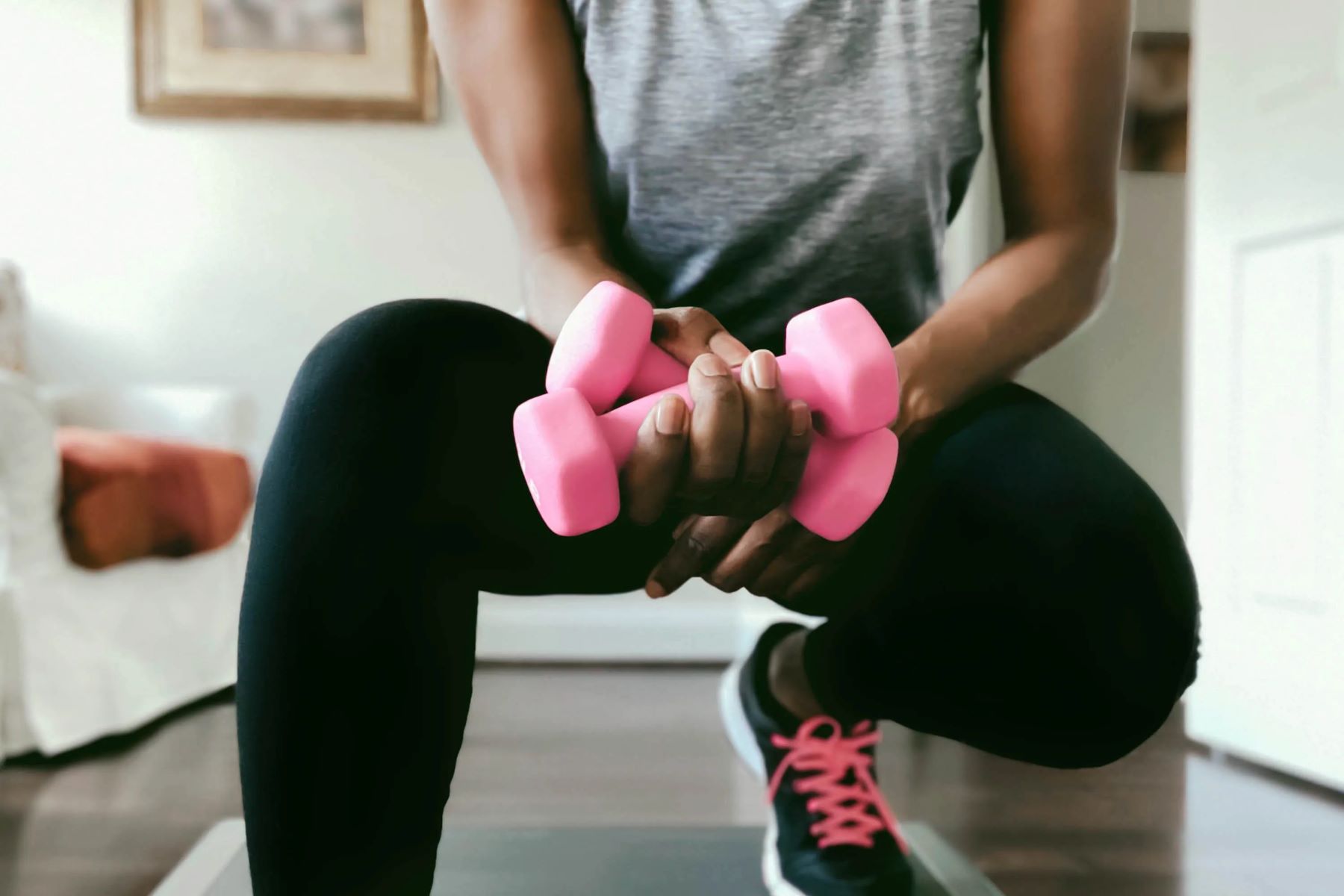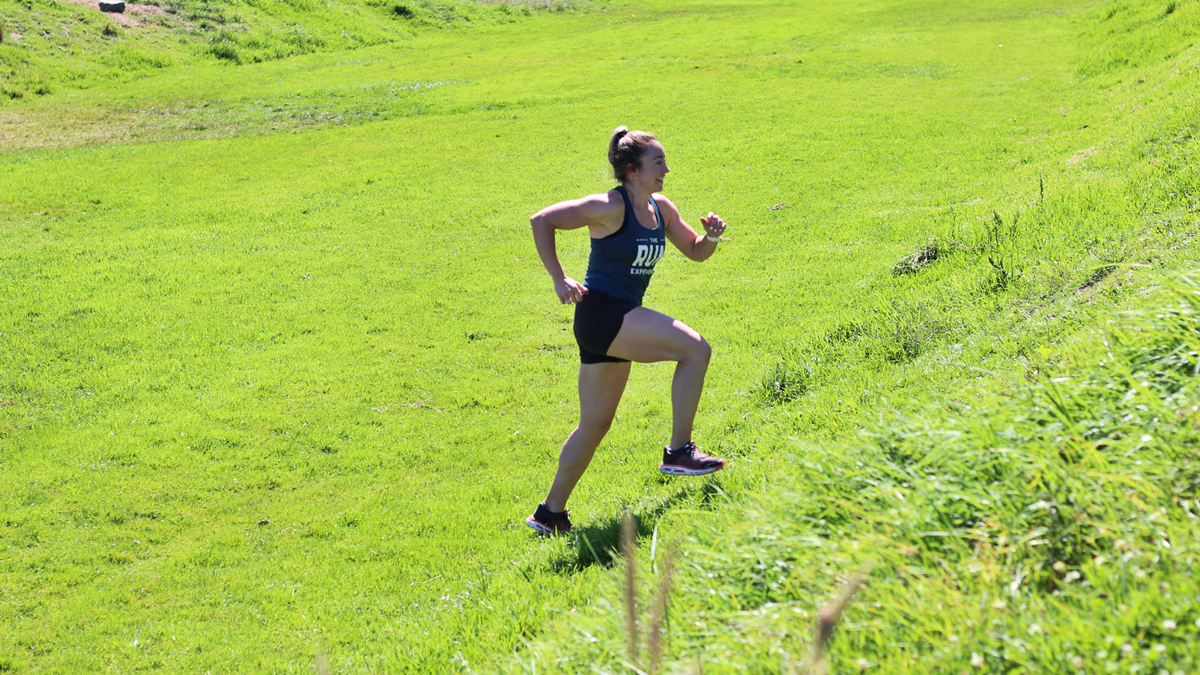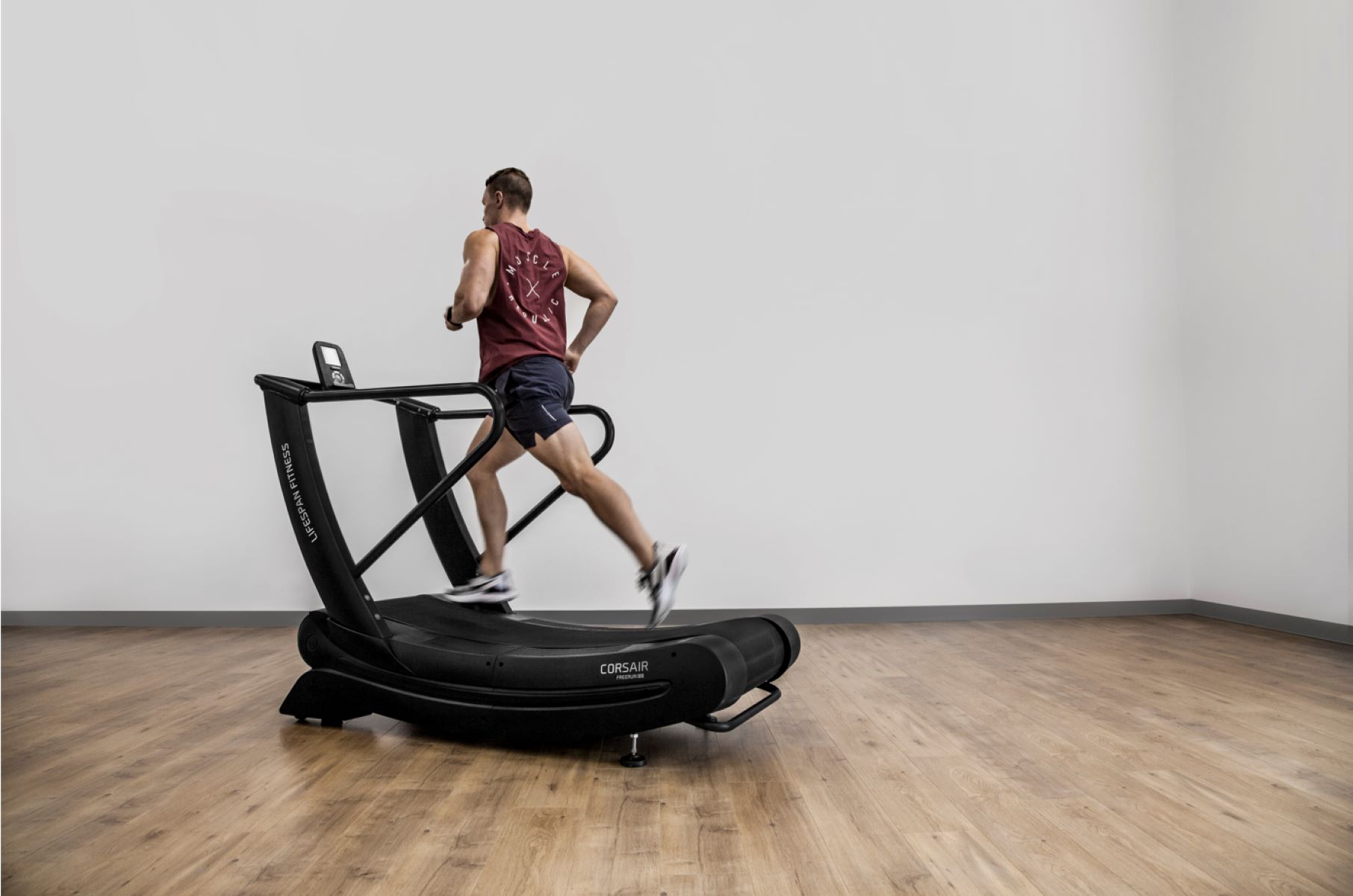

Featured
How Long Should A Beginner Workout
Modified: January 2, 2024
Looking to start a workout routine? Find out the ideal length for beginner workouts and get featured tips for achieving your fitness goals.
Introduction
Starting a workout routine as a beginner can be both exciting and overwhelming. You may find yourself wondering, “How long should a beginner workout?” This is a common question that many newcomers to fitness ask, and the answer is not a one-size-fits-all approach. The duration of a beginner workout can vary depending on several factors, such as your fitness level, goals, and overall health.
Exercise is essential for maintaining a healthy lifestyle, improving physical fitness, and preventing various health conditions. For beginners, it is crucial to approach workouts with caution and gradually increase intensity and duration over time. In this article, we will explore the importance of exercise for beginners, how to determine the right workout duration, factors to consider, guidelines for beginners, common mistakes to avoid, and signs that indicate a need to modify your workout duration.
By understanding these key aspects, you will be equipped with the knowledge to create a beginner workout routine that is safe, effective, and suits your individual needs.
Importance of Exercise for Beginners
Exercise is vital for beginners as it sets the foundation for a healthy and active lifestyle. Regular physical activity has numerous benefits, both for the body and the mind. For beginners, incorporating exercise into their daily routine can provide a solid starting point for long-term health and fitness.
Firstly, exercise helps to improve overall physical fitness. It strengthens muscles, increases endurance and flexibility, and enhances cardiovascular health. Regular exercise also promotes weight management by boosting metabolism and burning calories. For beginners, focusing on exercises that engage different muscle groups and gradually increasing intensity can be particularly beneficial.
Secondly, exercise has a profound impact on mental well-being. Engaging in physical activity releases endorphins, which are natural mood enhancers. Regular exercise can reduce stress, anxiety, and symptoms of depression. It also helps improve cognitive function and memory, making it an excellent addition to a beginner’s routine, especially for those who lead a sedentary lifestyle or work in a mentally demanding job.
Furthermore, exercise plays a significant role in preventing various health conditions. It helps lower the risk of chronic diseases such as heart disease, type 2 diabetes, and certain types of cancer. Regular physical activity also supports a healthy immune system, reducing the chances of falling ill or experiencing frequent illnesses.
In addition to physical and mental benefits, exercise can also improve sleep quality. Engaging in regular physical activity promotes a more restful sleep, resulting in increased energy levels during the day and improved overall well-being.
Overall, exercise should be seen as a crucial component of a beginner’s lifestyle. Not only does it help improve physical fitness, but it also enhances mental well-being and reduces the risk of various health conditions. By incorporating exercise into their routine, beginners can lay a solid foundation for a healthy and active future.
Determining the Right Workout Duration
When it comes to determining the right workout duration for beginners, it’s essential to find a balance between challenging oneself and avoiding overexertion. The duration of a workout can vary depending on individual factors, such as fitness level, goals, and available time. Here are a few considerations to keep in mind when determining the ideal workout duration:
1. Fitness Level: Beginners should start with shorter workout durations and gradually increase them as their fitness level improves. Pushing too hard or exercising for extended periods right from the start can lead to burnout or injury. It’s important to listen to your body and give it time to adapt to the demands of exercise.
2. Goals: The workout duration should align with your fitness goals. If you’re aiming for overall health and maintenance, a shorter duration of 30-45 minutes per session may be sufficient. However, if your goal is weight loss or building muscle, longer durations of around 60 minutes or more may be necessary.
3. Time Availability: Consider the time you can dedicate to workouts. If you have limited time, focusing on shorter, more intense workouts like high-intensity interval training (HIIT) can be an effective option. On the other hand, if you have more time available, you can spread out your workouts throughout the week with moderate durations.
4. Intensity: The intensity of your workout also plays a role in determining the ideal duration. If you’re exercising at a high intensity, shorter durations can still provide significant benefits. However, if you prefer lower intensity exercises, longer durations may be necessary to achieve the desired results.
Remember that it’s crucial to build a routine that is sustainable and enjoyable while still challenging your body. It may be helpful to consult with a fitness professional to get personalized recommendations based on your specific needs and goals.
Ultimately, the right workout duration for beginners should be a balance between pushing oneself to progress and avoiding excessive strain. By considering factors such as fitness level, goals, time availability, and intensity, you can determine the duration that will help you achieve your desired outcomes without risking burnout or injury.
Factors to Consider
When determining the ideal workout duration for beginners, several factors come into play. Understanding and considering these factors can help you create a workout routine that suits your individual needs and goals. Here are some key factors to consider:
1. Fitness Level: Your current fitness level plays a significant role in determining the appropriate workout duration. If you are just starting, it is recommended to begin with shorter durations and gradually increase as your fitness improves. This gradual progression helps prevent injury and allows your body to adapt to the demands of exercise.
2. Goals: Your fitness goals are crucial in determining the duration of your workouts. Different goals require different approaches. For example, if your goal is weight loss, longer workout durations may be needed to burn more calories. However, if your goal is strength building or muscle toning, shorter but more intense workouts may be effective.
3. Time Availability: Consider the amount of time you can realistically allocate to exercise. It’s important to choose a workout duration that fits into your schedule without causing unnecessary stress or sacrificing other important commitments. Finding a balance between the time you have available and the time needed to achieve your goals is key.
4. Exercise Variety: Incorporating a variety of exercises into your routine can influence the duration of your workouts. For example, if you plan to engage in both cardio and strength training exercises, you may need more time to complete a full workout session. On the other hand, focusing on a specific type of exercise may require a shorter duration.
5. Recovery Capacity: Taking into account your body’s ability to recover is crucial for avoiding burnout and injury. Beginners may require longer recovery periods between workouts, which can influence the frequency and duration of their exercise sessions.
6. Personal Preferences: Your personal preferences and enjoyment of certain types of exercises also play a role in determining the ideal workout duration. If you find a particular activity enjoyable, you may be more motivated to dedicate more time to it.
Considering these factors will help you make informed decisions about the duration of your workouts. It’s important to remember that everyone is different, and what works for one person may not work for another. Experimenting with different durations and listening to your body’s feedback will ultimately help you find the sweet spot for your workouts.
Guidelines for Beginner Workout Duration
When it comes to determining the appropriate workout duration for beginners, there are some general guidelines that can help you create an effective and safe exercise routine. While these are not set rules, they provide a starting point for beginners to build upon. Here are some guidelines to consider:
1. Start Gradually: Begin with shorter workout durations, typically around 20-30 minutes per session. This allows your body to adapt to the demands of exercise and reduces the risk of overexertion or injury.
2. Increase Duration Over Time: Gradually increase the duration of your workouts as your fitness level improves. Aim to add 5-10 minutes to your workout every one to two weeks until you reach your desired duration.
3. Focus on Consistency: Consistency is key for beginners. It’s more beneficial to have shorter, regular workouts than sporadic longer sessions. Aim for at least three to four workouts per week to establish a routine and build endurance.
4. Incorporate Rest Days: Rest days are an essential part of any workout routine, especially for beginners. Allow your body time to recover and rebuild between workouts to prevent overtraining. Aim for one to two rest days per week.
5. Listen to Your Body: Pay attention to how your body feels during and after exercise. If you feel excessively fatigued, sore, or experience pain, it may be a sign that you need to shorten your workout duration or adjust the intensity. Always prioritize your safety and well-being.
6. Seek Professional Guidance: If you’re unsure about the appropriate workout duration for your fitness level and goals, consider consulting with a fitness professional or personal trainer. They can provide personalized guidance and help tailor a workout routine that suits your individual needs.
7. Stay Hydrated and Fuel Properly: Regardless of workout duration, it’s essential to stay hydrated and fuel your body with nutritious foods before and after exercise. Proper hydration and adequate nutrition will support your energy levels, performance, and recovery.
Remember, these guidelines are not set in stone and may vary depending on individual factors. It’s crucial to listen to your body, be flexible with your approach, and make adjustments as needed. As you become more experienced and comfortable with your workouts, you can further fine-tune your durations to align with your goals and preferences.
Common Mistakes to Avoid
When it comes to determining the right workout duration for beginners, it’s important to be aware of common mistakes that can hinder progress and potentially lead to injury. By avoiding these mistakes, you can ensure that your workouts are safe, effective, and enjoyable. Here are some common mistakes to avoid:
1. Starting Too Intense: One of the most common mistakes beginners make is jumping into high-intensity workouts right from the start. This can be overwhelming for your body and increase the risk of injury. Instead, begin with lower intensity exercises and gradually build up to more intense workouts as your fitness level improves.
2. Ignoring Rest and Recovery: Many beginners overlook the importance of rest and recovery in their workout routine. Pushing yourself too hard without allowing ample recovery time can lead to burnout and increased risk of injury. Make sure to include rest days in your schedule and prioritize getting enough sleep to allow your body to heal and regenerate.
3. Neglecting Proper Form: Performing exercises with incorrect form not only reduces their effectiveness but can also lead to injuries. Take the time to learn proper form for each exercise and focus on maintaining it throughout your workouts. If needed, seek guidance from a qualified fitness professional to ensure that you are performing exercises correctly.
4. Overtraining: Some beginners may become overenthusiastic and try to do too much, too soon. Overtraining can lead to fatigue, decreased performance, and an increased risk of injuries. It’s important to find a balance and allow for adequate recovery between workouts. Listen to your body and adjust your workout duration and intensity accordingly.
5. Neglecting Warm-Up and Cool-Down: Skipping warm-up exercises and cool-down stretches is a common mistake that beginners make. Warm-up exercises help prepare your body for the workout and prevent injuries, while cool-down stretches aid in muscle recovery and flexibility. Always allocate time for both warm-up and cool-down in your workout sessions.
6. Neglecting Variety: Doing the same workout routine repeatedly can lead to boredom and stagnant progress. Incorporate variety into your workouts by trying different exercises, equipment, or workout formats. This not only keeps things interesting but also challenges your body in new ways and helps prevent plateaus.
7. Lack of Patience: It’s important to be patient with your progress as a beginner. Results take time, and trying to rush or push yourself too hard can lead to frustration and disappointment. Embrace the journey, celebrate small victories, and focus on progress rather than perfection.
By avoiding these common mistakes, you can create a workout routine that is safe, effective, and enjoyable. Remember to listen to your body, be mindful of your limitations, and seek guidance from qualified professionals when needed. With the right approach, you can achieve your fitness goals and establish a sustainable exercise routine.
Signs to Modify Workout Duration
As a beginner, it’s important to listen to your body and be aware of signs that indicate a need to modify your workout duration. Understanding these signs can help prevent overexertion, injury, and burnout. Here are some common signs to look out for:
1. Excessive Fatigue: Feeling excessively tired during or after your workouts can be a sign that your workout duration may be too long or intense for your current fitness level. If you find yourself struggling to complete your workouts or experiencing prolonged fatigue, consider shortening the duration or adjusting the intensity to allow for proper recovery.
2. Persistent Muscle or Joint Pain: It’s normal to experience some muscle soreness after a workout, but if you’re experiencing persistent muscle or joint pain that lasts for more than a day or two, it may be a sign that your workout duration is too strenuous. Reduce the duration and intensity of your workouts to allow your body time to recover and prevent further injury.
3. Decreased Performance: If you notice a significant decline in your performance during your workouts, such as struggling to maintain proper form, a decrease in strength or endurance, or a lack of motivation, it may be a sign that your workout duration needs adjustment. Consider shortening your workouts and gradually increasing the duration as your fitness level improves.
4. Difficulty Sleeping: Excessive exercise or workouts that are too long can disrupt your sleep patterns. If you find it challenging to fall asleep or experience restless nights after your workouts, it may be a sign that your workout duration is interfering with your body’s ability to recover. Consider reducing the duration or intensity of your workouts to promote better sleep quality.
5. Lack of Progress: If you’ve been consistently following a workout routine for an extended period but aren’t seeing any noticeable progress, it may be time to reevaluate your workout duration. Your body may have adapted to the current duration, and it may be beneficial to increase the duration slightly or incorporate new exercises to challenge your muscles and stimulate progress.
6. Changes in Energy Levels: Pay attention to any significant changes in your energy levels throughout the day. If you feel constantly fatigued, irritable, or have a general lack of energy, it could be a sign that your workouts are too long or intense. Adjusting the duration and intensity can help restore energy balance and prevent potential burnout.
7. Plateauing Results: If you’ve been making progress initially but have recently hit a plateau where your results have become stagnant, it may be time to reassess your workout duration. Increasing the duration slightly or incorporating more challenging exercises can help break through the plateau and continue making progress towards your goals.
Remember, it’s essential to prioritize your well-being and listen to your body. If any of these signs arise during your workouts, it’s a good indication that you need to modify your workout duration. Adjusting the duration and intensity can help ensure that your workouts are safe, effective, and sustainable in the long run.
Conclusion
Determining the right workout duration for beginners is not a one-size-fits-all approach. It requires consideration of various factors such as fitness level, goals, time availability, and individual preferences. By following the guidelines, avoiding common mistakes, and listening to your body, you can create a workout routine that is effective, safe, and enjoyable.
Exercise plays a crucial role in maintaining a healthy lifestyle, improving physical fitness, and preventing various health conditions. Incorporating regular physical activity into your routine as a beginner can set the foundation for long-term health and wellbeing.
Remember to start gradually, increasing the duration over time as your fitness level improves. Consistency is key, but so is rest and recovery. Pay attention to your body’s signals, modify your workout duration if needed, and seek professional guidance if necessary.
By finding the right balance between challenging yourself and avoiding overexertion, you can create a beginner workout routine that suits your individual needs and goals. Embrace the journey, be patient with your progress, and celebrate the small victories along the way.
Now that you have a better understanding of how to determine the right workout duration for beginners, it’s time to embark on your fitness journey. Remember to enjoy the process, stay motivated, and keep evolving your workouts as you continue to progress towards your goals. Start with a duration that feels comfortable for you, and gradually increase it as your body adapts and gets stronger.









